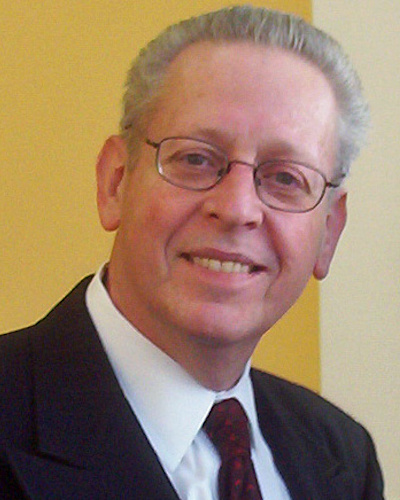
Michael Levine Oral History
Interview
The initial interview took place on January 6, 2020
And resumed on February 10, 2020
Biography
Michael E. Levine, early leader of the Congregation Beit Simchat Torah, was born in May 1943 to Julius and Dora Levine. Michael was raised in the Crown Heights neighborhood of Brooklyn, a primarily Orthodox Jewish community. As he learned the history of World War II and the Holocaust during his childhood, Michael came to believe that he had come into the world to help keep the Jewish people alive. Since Michael’s grandparents had emigrated to the U.S. from Russia (Belarus) in the early 1900s, their heritage was Ashkenazic Hebrew. Michael’s childhood was framed by his existence within a largely observant Jewish community—businesses closed down for High Holy Days and the Sabbath was observed by families. Michael’s parents did not attend synagogue except on special occasions and the family did not strictly observe the Sabbath. However, Michael’s grandfather went to his Orthodox shul to pray three times a day and he had a significant influence on Michael’s upbringing. As a teenager Michael was drawn to a youth group in a nearby Conservative synagogue where English was spoken, rather than Hebrew which Michael struggled to use. He felt that he was getting a glimpse of how he might live as a modern Jew in the city.
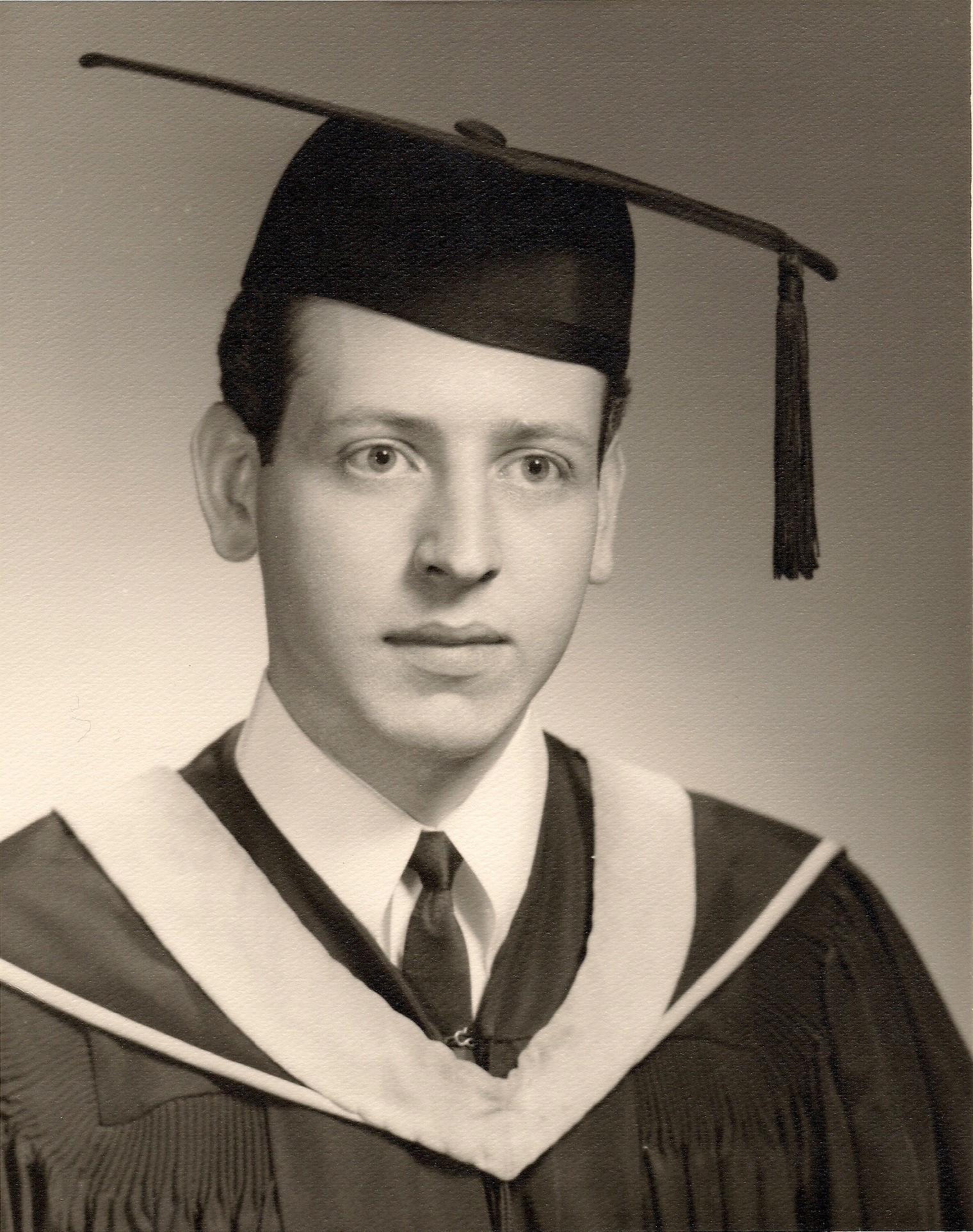 high school graduation 1966When Michael was 16 or 17 his family moved to East Flatbush. Michael finished high school and enrolled at Hunter College in the Bronx where he earned a bachelor’s degree in sociology and a master’s degree in urban planning. This was a rather solitary time for Michael as he was still living with his family, not close to friends from his youth and also coming to terms with his sexual orientation.
high school graduation 1966When Michael was 16 or 17 his family moved to East Flatbush. Michael finished high school and enrolled at Hunter College in the Bronx where he earned a bachelor’s degree in sociology and a master’s degree in urban planning. This was a rather solitary time for Michael as he was still living with his family, not close to friends from his youth and also coming to terms with his sexual orientation.
In his studies Michael had become interested in how cities develop and grow. He decided to pursue graduate studies in this arena—enrolling at Hunter College’s Graduate Program for Planning and Public Policy (as it is now called). Michael thrived in this school in Manhattan—being exposed to urban life and associating with some leading thinkers in urban planning. This was also his first opportunity to meet other gay people. In the summer of 1967, as he completed his first year at Hunter, Michael moved from the family home into his own apartment in Greenwich Village. Through friends he began to learn about the gay bars in Manhattan. The Stonewall Inn soon became one of his favorite hangouts.
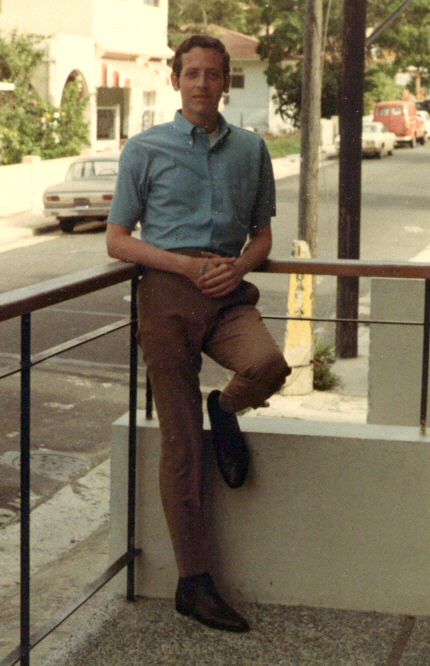 New York City 1968Michael graduated from Hunter in 1968 and began to work for the City of New York as an urban planner. He led a double life—loving his daytime work in city planning while enjoying weekends with friends at gay bars. He was with a friend at the Stonewall Inn on Friday night, June 29, 1969 when the infamous police raid happened. They were able to get out of the bar and watched the conflict from the street, a “revolution” as Michael would refer to it. He came back the next night to revel in this experience that oppression of gay persons must end. Michael’s fears of being outed to family and at work were soon allayed as family members and work colleagues contacted him to make sure he was OK and to ask about what he had seen. His closet doors had really been transparent and there were no negative repercussions.
New York City 1968Michael graduated from Hunter in 1968 and began to work for the City of New York as an urban planner. He led a double life—loving his daytime work in city planning while enjoying weekends with friends at gay bars. He was with a friend at the Stonewall Inn on Friday night, June 29, 1969 when the infamous police raid happened. They were able to get out of the bar and watched the conflict from the street, a “revolution” as Michael would refer to it. He came back the next night to revel in this experience that oppression of gay persons must end. Michael’s fears of being outed to family and at work were soon allayed as family members and work colleagues contacted him to make sure he was OK and to ask about what he had seen. His closet doors had really been transparent and there were no negative repercussions.
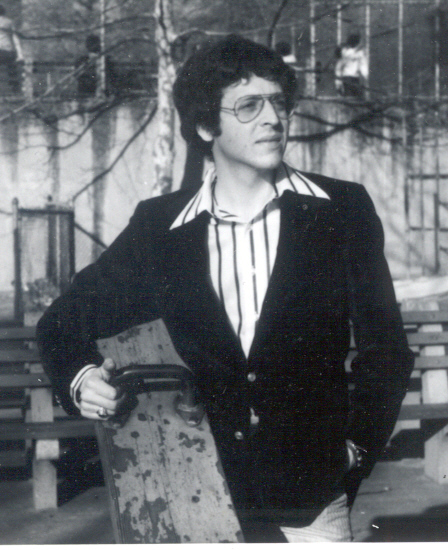 Michael in 1974The Stonewall experience was empowering for Michael and his community of friends, emboldening them to greater visibility and nascent activism. Even as he enjoyed his gay life in the Village, he felt lonely as a gay Jew. He had not been able to find a synagogue where he felt welcomed and comfortable. The turning point came in 1974, shortly before Rosh Hashanah, when he was at a bar with some friends. One friend was also Jewish and asked Michael if he had heard about the gay synagogue that had formed a year earlier and had announced plans for services for the High Holy Days. Michael had not heard this and his friend encouraged him to visit. So on Yom Kippur Michael attended the service at Congregation Beth Simchat Torah and immediately felt at home there—being in the company of other gay and lesbian Jews. He returned the next Friday night—and every Friday night thereafter. He got involved in the life of the community and served on committees. In 1975 he was elected to the board of trustees, serving two years as secretary and then three years a president. These were formative years for CBST and Michael played a significant role in the development of its ritual and social life.
Michael in 1974The Stonewall experience was empowering for Michael and his community of friends, emboldening them to greater visibility and nascent activism. Even as he enjoyed his gay life in the Village, he felt lonely as a gay Jew. He had not been able to find a synagogue where he felt welcomed and comfortable. The turning point came in 1974, shortly before Rosh Hashanah, when he was at a bar with some friends. One friend was also Jewish and asked Michael if he had heard about the gay synagogue that had formed a year earlier and had announced plans for services for the High Holy Days. Michael had not heard this and his friend encouraged him to visit. So on Yom Kippur Michael attended the service at Congregation Beth Simchat Torah and immediately felt at home there—being in the company of other gay and lesbian Jews. He returned the next Friday night—and every Friday night thereafter. He got involved in the life of the community and served on committees. In 1975 he was elected to the board of trustees, serving two years as secretary and then three years a president. These were formative years for CBST and Michael played a significant role in the development of its ritual and social life.
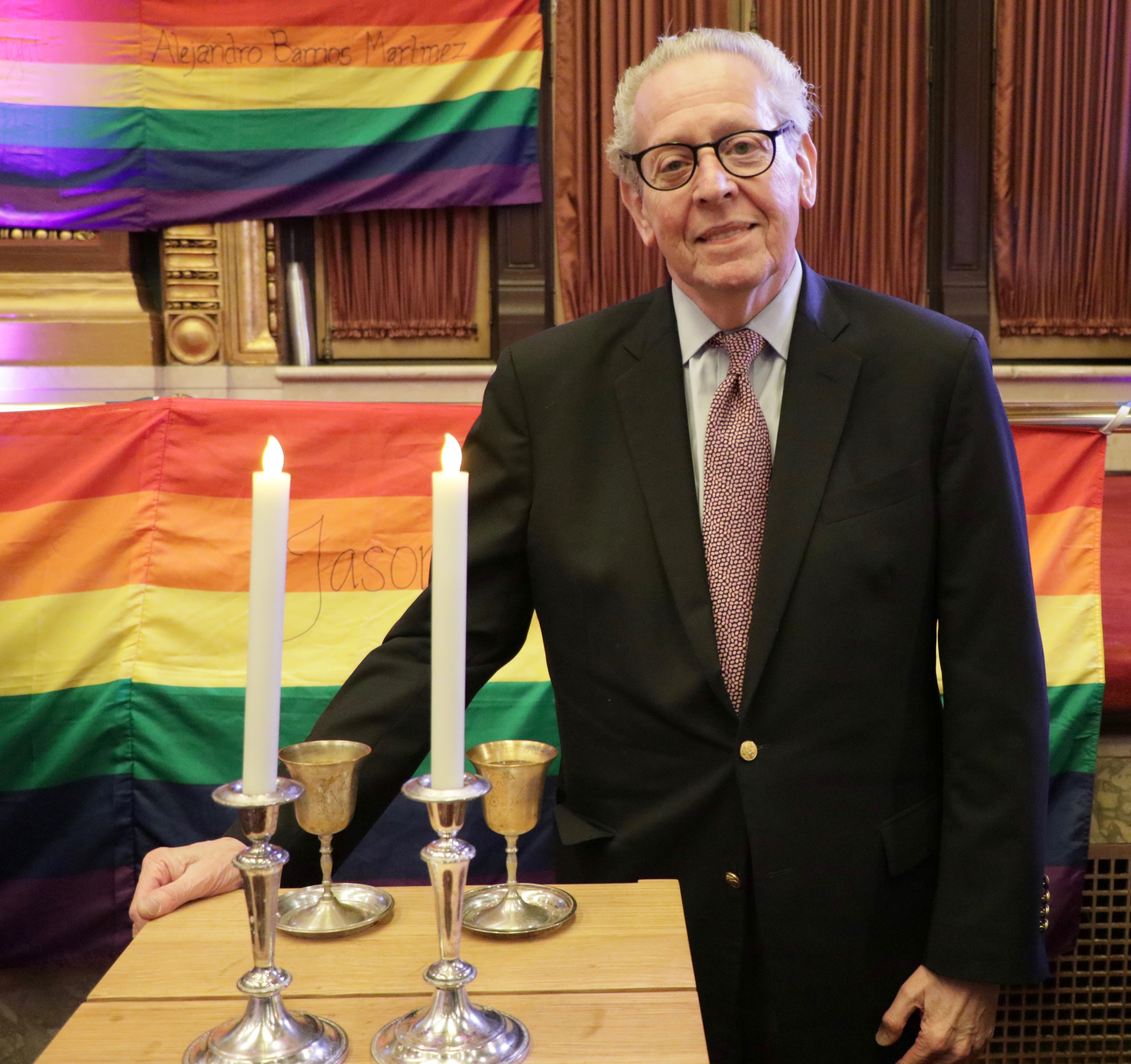 CBST Pride 2019Because of the pressing demands of his work, Michael left the CBST board in 1980 but continued to participate regularly in the life of the congregation. The 1980s was a challenging time for CBST with the AIDS outbreak which affected the synagogue in many ways. Toward the end of the decade CBST began exploring bringing on a staff person to help lead the community. Michael led some community meetings to discuss whether they needed a social worker or a rabbi. The decision was made to seek a rabbi and an extensive search process resulted in CBST engaging the services of Rabbi Sharon Kleinbaum in 1990. Michael returned to the board of directors for two years to assist with the transition from being a lay-led congregation to having a rabbi and to support Rabbi Kleinbaum in her new position.
CBST Pride 2019Because of the pressing demands of his work, Michael left the CBST board in 1980 but continued to participate regularly in the life of the congregation. The 1980s was a challenging time for CBST with the AIDS outbreak which affected the synagogue in many ways. Toward the end of the decade CBST began exploring bringing on a staff person to help lead the community. Michael led some community meetings to discuss whether they needed a social worker or a rabbi. The decision was made to seek a rabbi and an extensive search process resulted in CBST engaging the services of Rabbi Sharon Kleinbaum in 1990. Michael returned to the board of directors for two years to assist with the transition from being a lay-led congregation to having a rabbi and to support Rabbi Kleinbaum in her new position.
Michael continued his long, successful career with the New York City Planning Commission, finally retiring as Director of Administration in 1998. Then he moved into other part-time urban planning jobs and experiences. He staffed the New York state chapter of the American Planning Association from 2000 to 2008. In 2007 he took a position as urban planner for the Lower Manhattan Community Board One. He managed an intern program for the Fund of the City of New York and taught urban planning to undergraduate students at Pace University. He fully retired in 2018. He continues to live in Greenwich Village with his husband and participates regularly in the life of CBST.
(This biographical statement written by Mark Bowman from this interview with Michael Levine and edited by Michael Levine.)
Biography Date: February 2021
Additional Resources
Profiles:
Tags
Levine, Michael | Jewish (ethnic, Reform, Reconstructionist, Orthodox) | New York City | New York | Activist (religious institutions) | Gay Liberation Movement | Kleinbaum, Sharon
Citation
“Michael Levine | Oral History”, LGBTQ Religious Archives Network, accessed April 24, 2024, https://lgbtqreligiousarchives.org/oral-histories/michael-levine.